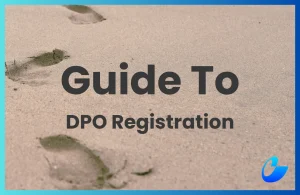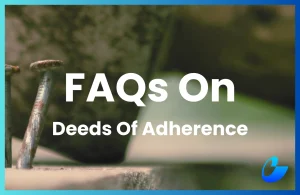Under Section 17A of the MACC Act, one instance of bribery by a wilful employee is potentially all it takes to earn their employer a RM1,000,000 fine (or more).
Fortunately, the law gives employers a defence: Prove the business has adequate procedures in place to prevent corruption.
That’s where a clear and well-implemented Anti-Bribery & Corruption (ABC) Policy can be an invaluable contribution, and below, we break down what goes into an ABC policy that can act as your legal shield against charges under Section 17A.
Understanding Section 17A of the MACC Act
Section 17A of the MACC Act introduces the concept of “corporate liability”, under which a company can be held liable if an employee or associated person gives or offers a bribe (even if top management is unaware) with intent to:
- obtain or retain business for the company
- obtain or retain an advantage in the conduct of business for the company
If found guilty, the company may face:
- a fine no less than 10 times the sum or value of the gratification or RM1 million (whichever is higher); and/or
- imprisonment up to 20 years for responsible individuals
However, Section 17A(4) of the MACC Act provides businesses with a statutory defence.
Section 17A(4)
Under Section 17A(4) of the MACC Act, if a business can demonstrate it has adequate procedures that prevent corruption by employees and associated persons, it may avoid liability under Section 17A.
Known as the “Adequate Procedures Defence”, it is based on specific guidelines by the Governance, Integrity and Anti-Corruption Centre (GIACC).
The guideline introduces a framework based on five pillars called T.R.U.S.T. which stands for:
- Top-level commitment – Top level management must demonstrate a stance against corrupt practices and assure stakeholders that the organisation operates in compliance with the law.
- Risk assessment – Conduct regular risk assessments, especially when there are changes in law or business circumstances, to addresss internal and external corruption risks.
- Undertake control measures – Implement appropriate controls and contingency measures that are reasonable and proportionate to the organisation’s nature and size.
- Systematic review, monitoring and enforcement – Top level management must ensure that regular reviews are conducted to assess the performance, efficiency, and effectiveness of the anti-corruption program.
- Training and communication – Develop and disseminate internal and external training and communications on their anti-corruption management, proportionate to their operation.
As we explain below, robust ABC Policy is one of the essential contributors to pillar “U”.
Breaking down the “U” in T.R.U.S.T.
Pillar “U” under T.R.U.S.T. (Undertake Control Measures) requires businesses to implement appropriate controls to address corruption risks, including the establishment of policies and procedures covering a range of areas:
- a general anti-bribery and corruption (ABC) policy or statement.
- conflicts of interest
- gifts, entertainment, hospitality, and travel
- donations and sponsorships, including political donations
- facilitation payments
- financial controls, such as separation of duties and multiple signatories for transactions
- non-financial controls, such as pre-tendering processes
- managing and improving inadequacies in the anti-corruption monitoring framework, and
- record-keeping for anti-corruption documentation
By setting rules for ethical conduct within the organisation, an ABC policy directly embodies the “U” pillar.
How an ABC policy helps T.R.U.S.T. compliance
Besides “U”, an ABC policy supports compliance with other T.R.U.S.T. pillars as well, for example:
- Risk Assessment (R): A policy on gifts and hospitality helps mitigate department-specific corruption risks in sales or marketing
- Top-Level Commitment (T): A practical way for top management to show an organisation’s zero-tolerance stance on corruption
Ultimately, an ABC Policy is often the first, most visible step in demonstrating a company’s commitment.
Elements of an effective ABC policy
A well-crafted ABC Policy will typically include:
- A zero-tolerance statement – A clear, unequivocal stance that the company does not tolerate any form of bribery or corruption, direct or indirect, from anyone acting on its behalf.
- Definitions and scope – Clarifies what constitutes bribery, facilitation payments, kickbacks, donations and sponsorships, gifts and hospitality, conflict of interest, and other forms of corrupt behaviour.
- Acceptable vs. prohibited conduct – Outlines what is and isn’t allowed when dealing with clients, vendors, regulators, and third parties. For example, thresholds or approval processes for giving/receiving corporate gifts or setting other financial and non-financial controls.
- Due diligence procedures – Establishes screening and onboarding processes for agents, suppliers, contractors, and business partners to ensure they meet integrity standards.
- Reporting mechanisms – Provides clear, safe channels for employees and stakeholders to report suspected misconduct, often linked to a separate Whistleblower Policy.
- Enforcement and disciplinary measures – Details the consequences for violating the policy, including disciplinary action, termination, or reporting to relevant authority.
- Training and awareness – Regular training sessions, onboarding briefings, and refresher campaigns to ensure that employees understand and apply the policy in their roles.
Organisation-wide policy implementation
Having an ABC Policy is an essential start, but to serve as a meaningful legal defence, it must be communicated and implemented at every level of the organisation.
SPRM has published a collection of case studies on how businesses can practice the T.R.U.S.T. principles in line with Section 17A, which we have summarised below:
| Issue | Takeaway |
| Company A, a small supplier looking to expand nationally and internationally, and its concerns about corruption risks impacting reputation and stakeholder trust |
|
| Company B, a construction firm heavily reliant on third parties (contractors, suppliers, joint ventures) can be exposed to corruption risk if any third party behaves in an illegal, unsafe or unethical way. |
|
| Company C, a medical product supplier, facing corruption risks due to its marketing agent’s unregulated provision of offering cash incentives and gifts to hospitals and clinics to encourage them to prescribe the medical products. |
|
| Company D, an expanding service and retail company, concerns about the corruption risks associated with recruiting new personnel, particularly a department director for its new IT sector |
|
A well-implemented ABC Policy should be part of a broader anti-corruption ecosystem, guided by T.R.U.S.T. pillars.
Beyond an organisation shielding itself from liability, this is about earning trust, safeguarding your reputation, and building a resilient business that people want to work with (and invest in).
Bulletproof your ABC Policy
If you would like guidance on drafting or reviewing an Anti-Bribery & Corruption Policy that fits your business needs, our team is here to help.
Let’s work together to protect your company’s integrity and long-term success.










